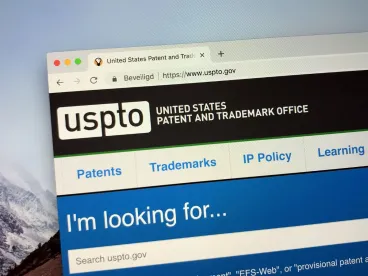The USPTO has commenced the fee-setting process for fee adjustments it expects to implement in January 2025. While many fee changes are modest (~5%), the USPTO proposes significant increases to design patent fees and PTAB trial fees and proposes new fees that could influence applicant behavior and impact how patent applications are prosecuted. A hybrid public hearing regarding the proposed fees is scheduled for May 18, 2023, at 1-3 p.m. ET.
The USPTO Fee-Setting Process
Under the Leahy-Smith America Invents Act (AIA) the USPTO fee-setting process is a multi-step process that requires input from the Patent Public Advisory Committee (PPAC), a public hearing, and a public notice and comment period. That explains why the USPTO does not expect to implement the proposed fee adjustments until the January 2025 time frame.
Proposed Fee Adjustments
Detailed information on the proposed fee adjustments are available on the USPTO’s Fee-Setting web page. There you can find the Director’s letter to PPAC and a slide deck that provides the USPTO’s Executive Summary of the proposals, as well as documents identifying all proposed fee adjustments.
The following summary lists fees at the undiscounted (large entity) rate.
Significantly Higher Fees
Examples of significantly higher fees include:
-
The aggregate of filing, search, examination, and issue fees for design patents will increase by about 48%
-
Excess claim fees will double to $200 for each claim over 20 and increase 25% to $600 for each independent claim over 3.
-
RCE fees will increase, with a new higher tier for third and subsequent RCEs.
-
1st RCE: $1500
-
2nd RCE: $2500
-
3rd RCE: $3600
-
-
The fee for a Request for Reconsideration of the USPTO’s Patent Term Adjustment calculation would increase 43% from $210 to $300
The Executive Summary states that this increase will “Distributes the costs of the service to only those applicants requesting the service.” Excuse us for asking the USPTO to correctly implement its own PTA rules!
-
The fee for a Patent Term Extension application (e.g., based on FDA review of a regulated product) would increase 468% from $1180 to $6700
USPTO data indicate that historical costs for processing PTE applications is $2581.
New Fees Aimed at Cost Recovery
-
Assignment recordation (electronic): $40
-
Assignment recordation (paper): $60
The Executive Summary suggests that re-imposing the assignment recordation fee withdrawn in 2014 will “discourage frivolous submissions” as well as help recover costs. I could not find further explanation of what the USPTO means by “frivolous” assignment submissions.
-
After Final Consideration Pilot Program Request: $500
-
Petitions associated with unintentional delay of > 2 years: $3000
New Fees That Could Change Applicant Behavior
-
Continuing Application Surcharge (filed ≥ 3 years after priority date): $1500
-
Continuing Application Surcharge (filed ≥ 7 years after priority date): $3000
The Executive Summary states that these surcharges will “partially offset foregone maintenance fee revenue resulting from later-filed continuing applications,” but also are designed to “encourage more efficient filing and prosecution behavior from applicants.” I understand the surcharge tiers are keyed to maintenance fee payment deadlines, but question how applicants can be expected to decide whether to file a continuation application before examination of their first application is completed. (The current average traditional total pendency (including applications with RCEs) is 29.7 months.)
-
Escalating IDS fees based on the cumulative number of references cited:
-
> 50 items: $200
-
> 100 items: $300
-
> 200 items: $300
-
-
Escalating Terminal Disclaimer fees based on when the Terminal Disclaimer is filed:
-
Before a first Office Action on the merits: $200
-
Before a final Office Action: $500
-
After a final Office Action or Allowance: $800
-
On or after filing a Notice of Appeal: $1100
-
After patent grant: $1400
-
The Executive Summary states that “the cost to process a terminal disclaimer increases greatly after certain milestones,” but should applicants be penalized for postponing the significant and largely irrevocable step of filing a Terminal Disclaimer until it is clear that a Terminal Disclaimer is necessary (e.g., until it is clear the claims likely to be granted could suffer from obviousness-type double patenting)?
PTAB Trial Fees
-
Petition fees for PTAB trials would increase by about 25%
-
There would be a new $440 fee for a Request for Director review of a PTAB decision
-
Related to recently announced PTAB reforms under consideration, the USPTO proposes new fixed fees for exceeding prescribed page limits:
-
IPR Request (+7000 words): $11,875
-
IPR Request (+14,000 words): $23,750
-
IPR Post-Institution (+7000 words): $14,065
-
IPR Post-Institution (+14,000 words): $28,125
-
PGR Request (+9350 words): $12,500
-
PGR Request (+18,700 words): $25,000
-
PGR Post-Institution (+9350 words): $17,190
-
PGR Post-Institution (+18,700 words): $34,375
-
Paying For Discounts Mandated By The Unleashing American Innovators Act
Consistent with the principle that there is no such thing as a free lunch, the Director’s letter to PPAC explains that the steeper small and micro entity fee discounts mandated by the Unleashing American Innovators Act coupled with recent “higher-than-expected inflation” mean the USPTO will experience an “operating shortfall” beginning in fiscal year 2025. Thus, the USPTO needs to adjust its fees to cover its operating costs and support other goals such as “driv[ing] inclusive U.S. innovation and global competitiveness,” “promot[ing] the efficient delivery of reliable IP rights,” “promot[ing] the protection of IP against new and persistent threats,” “bring[ing] innovation to positive impact,” and improving the employee and customer experience.
The USPTO invites written comments on the proposed fee adjustments and has an application process for anyone wishing to testify orally at the May 18, 2023 meeting.




 />i
/>i
